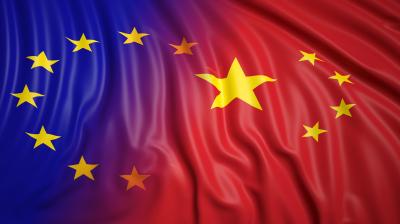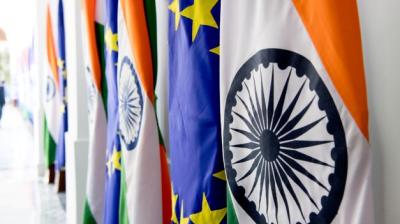The European Union is unwisely defensive in its economic security
The European Union should reach out to corporations and emerging economies
The new European Economic Security Strategy presented on Wednesday by the president of the European Commission, Ursula von der Leyen, is a milestone. Favoured by Brussels and many European member states, the strategy advocates a much tougher stance in a world of fiercely competing political and economic blocs. Obviously, the elephant in the room is China, although this politically correct strategy studiously avoids using the C-word.
This policy overhaul was long overdue. Yet, in focusing largely on security and the risks facing Europe, the new strategy appears to omit an important point: relationships of trust with corporations and other countries will make or break the EU’s new strategy. Indeed, it includes disappointingly few steps to secure vital partnerships with the private sector and emerging economies, including South Africa, Kazakhstan and Vietnam.
Following criticism from some members states and experts, the new strategy now incorporates language around the need to promote technological leadership and partnerships. However, it still depicts a Union preoccupied with defensive measures and unconcerned with enticing others to move in sync with its efforts. It is precisely this lack of new ideas and concrete instruments where the European strategy falls short, which undoubtedly has consequences for the Netherlands.
Why did Europe, however reluctantly, move beyond the era of economic efficiency and free trade? Why has the call for economic security become so strident?
The answer to these questions lies in our liberal-capitalist system’s inability to outcompete autocratic Chinese state capitalism. The alternative world order pursued by China actively avoids transparency, disregards individual liberties, and pursues the state’s interests with single-minded determination. Yet, despite its disregard for the values which we have fought so hard to enshrine in our Western systems, the Chinese system has not only succeeded, but made us frighteningly dependent on Beijing. The Covid pandemic laid bare these dependencies, exposing our reliance on China for rare metals and microchips that power our technologies to the facemasks that safeguard our health.
Both the public and private sector are investing in ensuring secure and sustainable supply chains of critical raw materials, in critical infrastructure such as telecom networks, and in expertise in the technology sector. The Dutch cabinet has imposed restrictions on the export of the best chip-making machines and surveillance cameras, which can also serve military purposes or curtail civil liberties. The overriding goal is to ensure that the Netherlands can continue to make its own choices, for instance between international providers of essential digital services and what kind of relationship it wants to maintain with Taiwan.
In The Hague and Brussels, it’s all hands on deck to make up for lost time. Unsurprisingly, the Netherlands is leading the charge, as its formidable technology and innovation ecosystems present juicy targets. Sophisticated manufacturing at companies such as ASML and the world-renowned research of Dutch universities – including agricultural technology breakthroughs in Wageningen and quantum advancements in Delft, Eindhoven and Enschede – cannot go undefended.
After years of cutbacks, the Dutch government is finally resuming investments in its eyes and ears abroad. Since the start of this year, diplomats specifically tasked with economic security have been posted at some eighteen embassies around the world, including Beijing, Washington, Tokyo and Singapore. Additionally, the Ministry of Foreign Affairs established an international network of Dutch knowledge diplomats specialized in cyber security and innovation last year to support embassy staff abroad.
However, necessity of economic security remains unclear to businesses and universities, largely due to government inaction. While recently opened online helpdesks have begun educating corporations and universities on their roles in this new strategy more can and should be done. Platforms to engage with the private sector on major political decisions and to hear its challenges, concerns, and wishes have yet to be created. This is important, as these companies and knowledge centres are the ones who must incorporate economic security into their operational management. Moreover, without significant investments by these players in for example telecom networks and secure data centres abroad, the world’s digital infrastructure in emerging economies will be built exclusively with Chinese money and according to Chinese principles.
Still, many businesses and other countries remain wary of what The Hague and Brussels are now touting as economic security. Whereas the EU, including the Netherlands, was quick to criticise countries like France and Japan for their protectionist industrial policies just a few years ago, it now seems impervious to the same criticism.
Now that the European Strategy for Economic Security – with a focus on security – is out, the Netherlands and the EU need to engage robustly with the other side of the coin: investing in relationships of trust and collaboration with the private sector and other countries outside Europe, from Africa to Asia.
A Dutch version of this op-ed was published in newspaper NRC.








